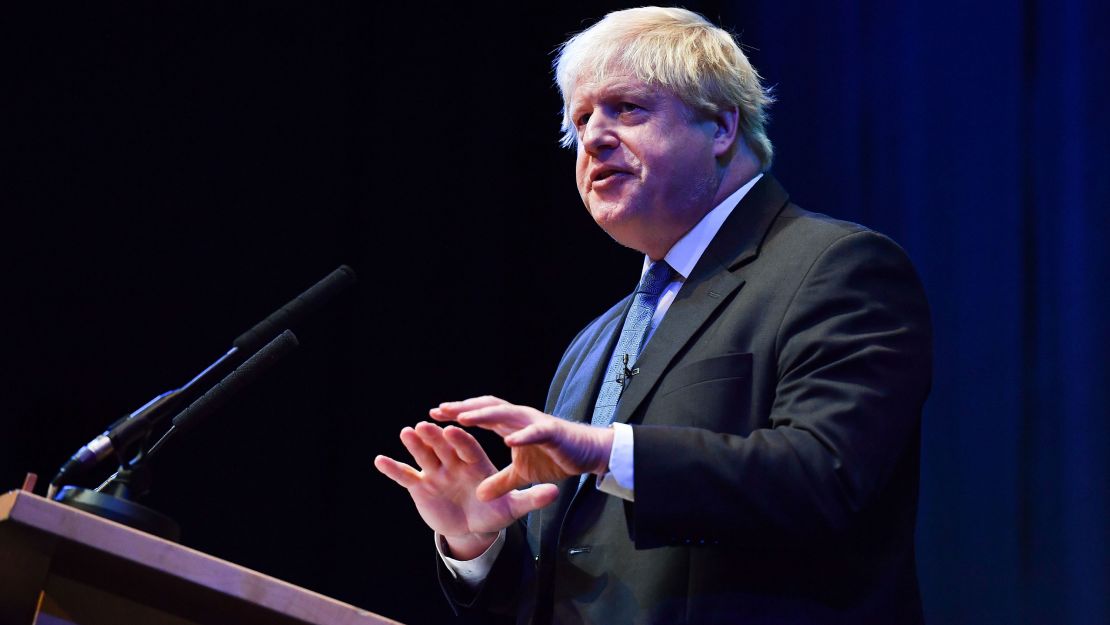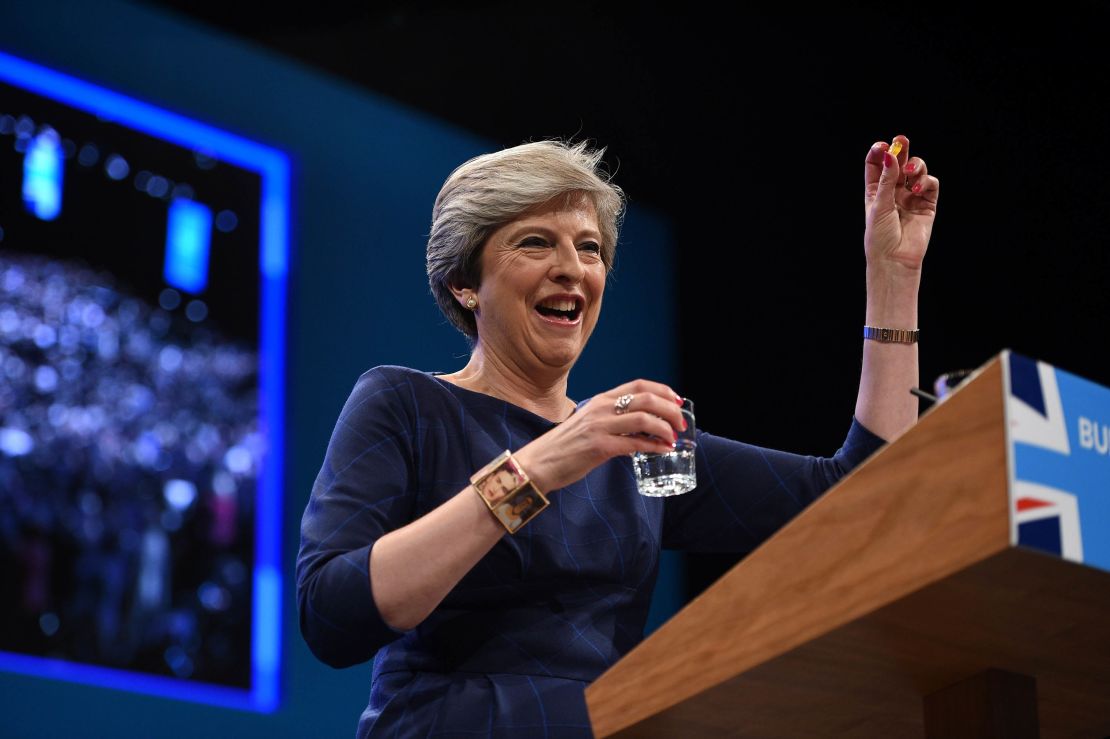Nothing better demonstrates the Brexit paralysis currently blighting British politics than the staid opening two days of the governing Conservative Party’s annual conference.
Perhaps the media can be forgiven for swerving the speeches of lesser-known members of Theresa May’s Government. But not even the party faithful, gathered here in the city of Birmingham, can summon up much enthusiasm. On Sunday they left their Chairman, Brandon Lewis, speaking virtually to himself in a near-empty hall.
By contrast, many of the fringe events – which take place outside the main conference hall in admittedly smaller venues – have been jam-packed, even though such gatherings are mostly just dull talking shops featuring little-known lawmakers.
Lines of delegates snake around the conference center to make sure of a seat at events featuring rowdy, pro-Brexit figures like Jacob Rees-Mogg. Aside from Prime Minister Theresa May’s closing speech, it’s hard to imagine much of the main conference agenda attracting anything like this enthusiasm.
Enter Boris Johnson.

The former foreign secretary, universally known by his first name, is probably the most recognizable politician in Britain. He triumphed as leader of the official campaign for Britain to leave the European Union, but ducked the race for Downing Street when David Cameron quit as prime minister, preferring instead to leave the dirty work of Brexit to others.
Since resigning from May’s Cabinet over her Brexit strategy, he has busied himself with making life difficult for her with regular barbs fired from his column in the Daily Telegraph newspaper.
Such a nuisance had he become that senior Cabinet ministers – most notably Chancellor of the Exchequer Phillip Hammond – this week attacked Johnson publicly, mocking him in a newspaper interview and saying that he was incapable of “grown-up” politics.
It was no big surprise that he used his first big speech since resigning from May’s government to call on the Prime Minister to scrap her Brexit plan – or, in the Johnson vernacular, “chuck Chequers.”
Ahead of his speech – necessarily a fringe event, since Johnson is no longer a government minister – speculation was rife that it would amount to a leadership bid, offering an alternative program for Britain.
That it was not. Well, not quite.
Chequers plan would ‘cheat the electorate’
As usual, Johnson couldn’t resist offering a glimmer of hope to party members who would like to see him take May’s job.
He rallied party activists to get behind May. He called on the Prime Minister to deliver the right sort of Brexit, rather than “cheat the electorate.”
He said that those claiming there is no alternative to the Chequers plan – cough, like May herself, cough – should not be believed, and mischievously added that the looser trading arrangements that he and other Brexiteers favor over May’s plan “are derived from the Prime Minister’s own vision at Lancaster House.”
But the address was hardly a full-throated expression of support for the Prime Minister, either.
Indeed, much in the speech will have worried Downing Street. He portrayed Chequers as a plan that “provides the perfect logic and argument for those who want Britain to return to the EU,” adding that it would only “only embolden those who are now calling for a second referendum.”
‘A political humiliation’
Chequers would, in Johnson’s eyes, leave British business and industry “perpetually to regulations that might have been expressly designed, at the behest of foreign competitors, to do them down.”
He said that accepting EU regulations on agri-foods and goods, as outlined in the Chequers deal, would be a “political humiliation for a £2 trillion economy.”
He joked that Chequers could be prosecuted “under the 14th century statute of praemunire, which says that no foreign court or government shall have jurisdiction in this country.”
So, while Johnson’s plan will have delighted many of those in the party desperate for May to chuck her Brexit plan and move toward a looser free-trade arrangement with the EU – Johnson calls his own version of this “SuperCanada” – will those keen for Johnson to lead the party be disappointed?
As ever with Johnson, there was a nod to the future and a glimpse of his possible ambitions.
There was also plenty of red meat for his Conservative audience: tax cuts, housing policy, defense of capitalism and devolution of power to the regions.
But despite the media speculation ahead of the speech, very few in the party believed that Johnson would use this platform to launch a full-on leadership bid.
No leadership contest yet
It was always going to be all about Chequers, Iain Duncan Smith, a former party leader, explained to CNN. “There will always be leadership talk, but that’s inevitable. He [Johnson] is very focused on ending Chequers and moving to a free-trade deal. Theresa May must accept that a free-trade deal is the only viable outcome.”
John Redwood, a veteran pro-Brexit member of Parliament. added that the party “hates Chequers” and “she has to dump it.”
“We are happy for her to be PM, but she’s got to understand this is a big issue and we fundamentally disagree with her,” he said.

In any event, it’s not clear that Johnson has enough support among fellow MPs to launch a successful leadership challenge. As one prominent Conservative MP told CNN, Johnson’s “numbers are in the single figures.”
“He’s not even remotely close. It’s Nadine Dorries and Andrew Bridgen and that’s it,” the MP said, referring to two lawmakers whose names are not widely known outside their own constituencies.
How much impact Boris Day will have on the coming narrative concerning both Brexit and May’s premiership remains to be seen.
If May receives a standing ovation in the conference hall tomorrow, then she can chalk this week off as a success: no major public rows, no one calling for her resignation and no coughing fit as she delivers her speech.
However, though Johnson didn’t officially launch a leadership bid in Birmingham, battering May’s Chequers plan – now so synonymous with the PM – is like performing a piece of political voodoo: and what hurts Chequers hurts her.
CNN’s Bianca Nobilo contributed to this report






